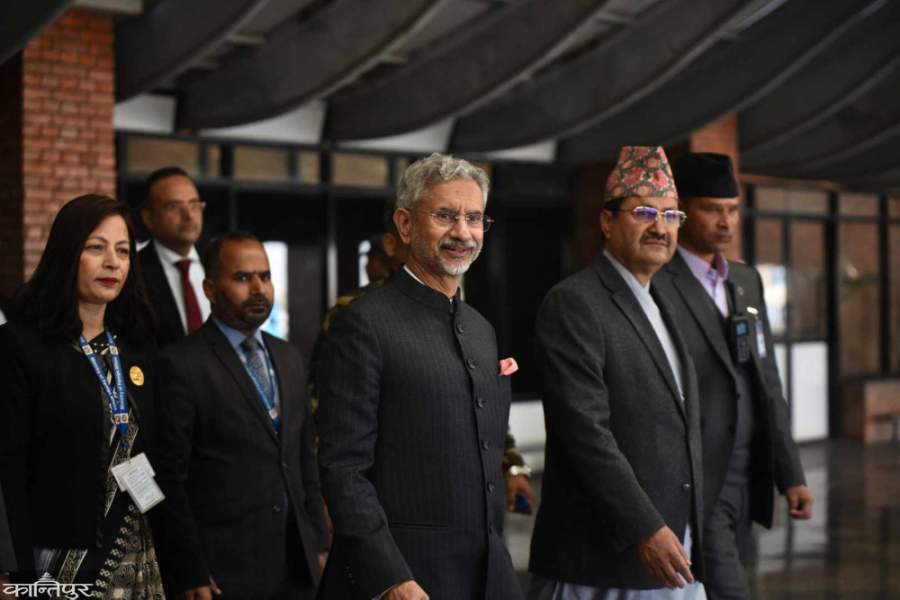

The neighboring countries of Nepal and India have a shared historical narrative and geopolitical importance, yet they continuously confront diverse challenges that influence their bilateral interactions. The recent seventh session of the Joint Commission between the two nations convened in Kathmandu underscored numerous significant advancements, including reaching a consensus on several agreements. Although these engagements are designed to promote cooperation, it’s critical to scrutinize them meticulously for potential implications – particularly considering pre-existing disputes and power dynamics inherent within Indo-Nepalese relations.
Historically, Nepal and India have been engaged in a myriad of conflicts spanning from territorial disagreements to water resource disputes and political influence concerns. The precedent set by Nepal’s tactical approach towards maintaining equilibrium with its Indian counterpart while simultaneously upholding its independence has paved the way for their latest interactions. It seemed Nepal’s party failed to raise many important issues which have been highly unequal and disputed for years and years such as Sugauli Sandhi and mainly the EPG report.

4-point agreement:
The latest meeting of Nepal and India’s Foreign Ministers culminated in a Comprehensive 4-Point Accord, addressing an array of concerns spanning economic collaboration to catastrophe handling. Significantly, India proclaimed a donation amounting to Rs10 billion towards the rehabilitation initiatives in Nepal, underlining joint ventures concerning commerce, infrastructural undertakings, and power generation.
Big Brother attitude:
Although financial partnerships and funding are crucial for shared progress, apprehensions surface in relation to India’s alleged domineering demeanor. Detractors suggest that India’s historical supremacy within the region, particularly around water resources and political sway, calls into question the authenticity of bilateral interactions. The recent pact involving energy supply — which ensures 10,000 MW of hydroelectric power from Nepal for Indian consumption— has ignited controversy with both activists and retired officials voicing worries about its repercussions on Nepalese water reserves. Furthermore, a direct investment summing up to 20 crores by India is regarded as potentially jeopardizing Nepal’s sovereignty along with its nationalism and self-governance.
Nepali interest and disputed issues:
Conversely, the importance of Nepal’s desire for economic progression and collaboration is undeniable. The commitments to enduring power trade arrangements, augmented support for minor development initiatives, and cross-border infrastructure schemes are demonstrative of Nepal’s dedication in harnessing its rapport with India towards self-growth. Yet it remains imperative to establish an equilibrium that guarantees such partnerships honor Nepal’s autonomy while also prioritizing their national interests.
Remarkably, the latest gathering neglected to discuss critical matters like the Chuchhe Naksa in Nepal’s Kalapani-Limpiyadhura-Lipulek territory, Pancheshor Dam, and Pokhara Bhairahawa International Airport’s operations. It has been suggested that India’s unwillingness to offer air routes or assist with operating international airports backed by China indicates an intention of excluding Nepal from China’s sphere of influence which could impede its diplomatic autonomy.
The recent gathering of the Joint Commission between Nepal and India brings to light the intricate nature of their bilateral ties. Economic collaborations and accords are paramount for regional growth, yet it’s crucial to scrutinize power interplay, historical disagreements, as well as collaborative undertakings’ repercussions meticulously. Achieving equilibrium that upholds each nation’s independence while encouraging reciprocal cooperation continues to be a hurdle demanding ongoing discussions and diplomatic tactfulness.
(Note: Luitel Jee serves as the Advisor Editor for eNepalese.com and is currently pursuing a doctoral fellowship.)
Comment